Monk with a Camera: The Life and Journey of Nicholas Vreeland is a 2014 American documentary film that chronicles the life of Nicholas Vreeland, who left behind an existence of privilege to embrace the Tibetan Buddhist monastic life. Directed by Guido Santi and Tina Mascara, this film not only examines his personal transformation, but also offers an intimate look at Tibetan Buddhism and its influence on the West. Through its narrative, the documentary invites us to reflect on the search for meaning and spiritual connection in an increasingly materialistic world.
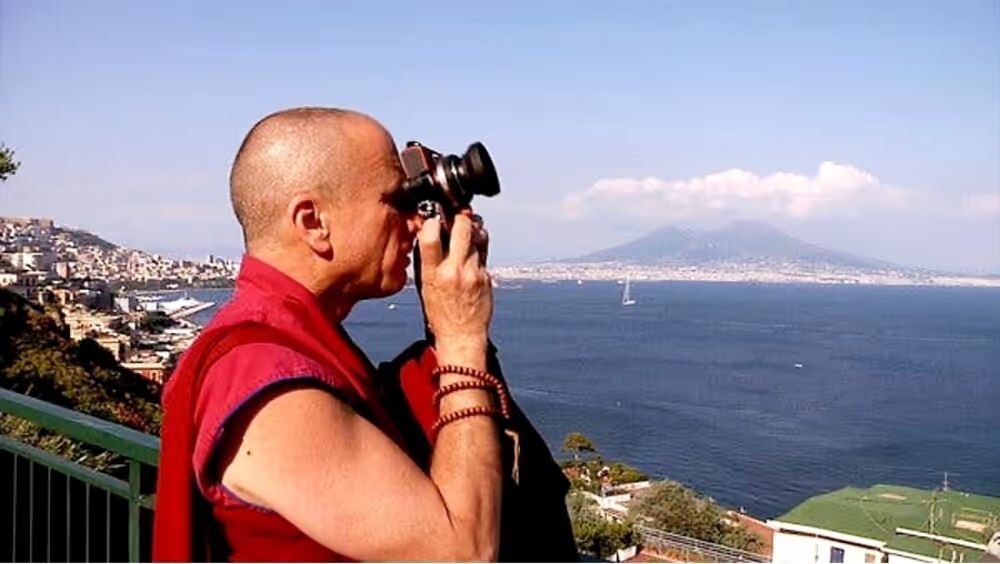
From spotlights to meditation
Nicholas Vreeland was born in 1954 into a prominent family in New York. His grandmother, Diana Vreeland, was an influential figure in the fashion world, known for her work as editor of Vogue. Growing up in such a glamorous and culturally rich environment gave Nicholas a unique perspective on life. From a young age, she showed a keen interest in photography and, after completing her education, trained under the tutelage of renowned photographer Irving Penn.
Throughout his career, Vreeland worked with several fashion magazines and was recognized for his talent in capturing images that reflected not only the aesthetics, but also the essence of his subjects. However, despite his professional success, Vreeland felt an inner emptiness that led him to question his path. Life in the world of fashion and photography did not provide him with the spiritual satisfaction he longed for.
The spiritual call
The turning point in Vreeland's life came in 1978, when he met Khyongla Rato Rinpoche, a Tibetan master who became his spiritual guide. This meeting was a revelation for him, as Rinpoche introduced him to the teachings of Tibetan Buddhism, which resonated deeply with his being. Motivated by this connection, Vreeland made the bold decision to leave his life in New York and move to India to study Buddhism full-time.
His new life began at Rato Dratsang Monastery, located in Karnataka, where he dedicated himself to meditation and the study of sacred texts for fourteen years. This period was pivotal to his personal transformation, as he learned not only about Buddhist philosophy, but also about discipline, compassion and the importance of community. Through deep meditation and study, Vreeland began to discover a sense of peace and purpose that had been absent in his previous life.
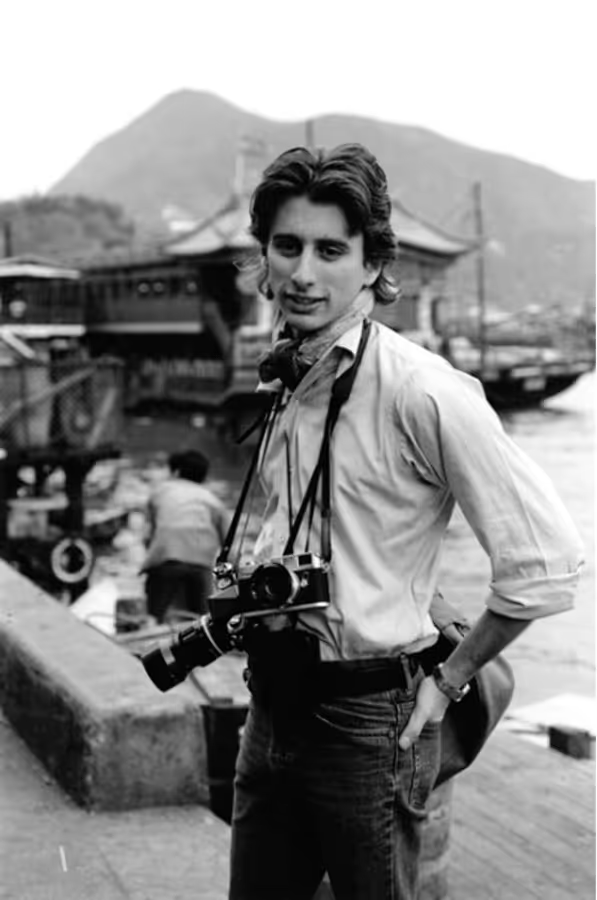
The Intersection of Photography and Buddhism
Despite his commitment to the monastic life, Vreeland could not completely escape his passion for photography. In an ironic twist of fate, his skill in photography became a valuable resource for the monastery. When the monastery faced financial problems and needed funds for reconstruction, Vreeland used her talent to raise money.
He organized exhibitions and sales of his photographs, raising more than $400,000 for the restoration of the monastery. This act not only demonstrated Vreeland's versatility, but also showed how his two worlds - photography and Buddhism - could coexist and enrich each other. Photography, once a career, became a means to serve her community, giving new meaning to her art.
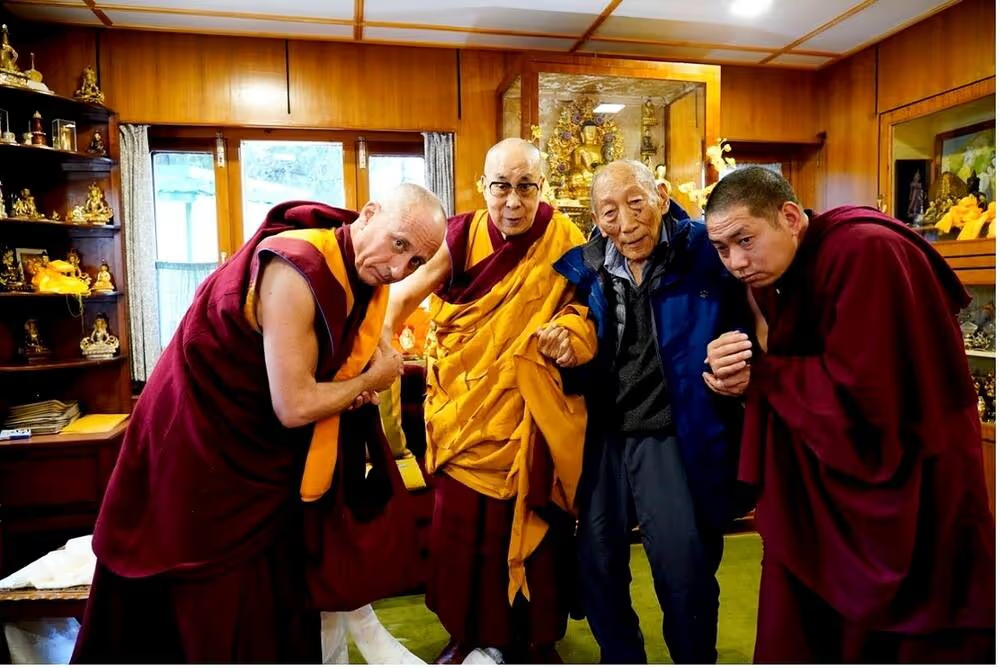
A western abbot
The culmination of his transformation came with his appointment as abbot of Rato Dratsang Monastery, an honor bestowed by the Dalai Lama himself. This appointment was not only a recognition of his dedication and commitment to Tibetan Buddhism, but also symbolized an important milestone in the history of Buddhism, as Vreeland became the first Westerner to hold such a position.
As abbot, Vreeland took on the responsibility of guiding others on their spiritual path, sharing Buddhist teachings and promoting cross-cultural understanding. His role as a spiritual leader allowed him to connect his Western experience with the rich Buddhist tradition, fostering a dialogue that resonated with communities around the world.
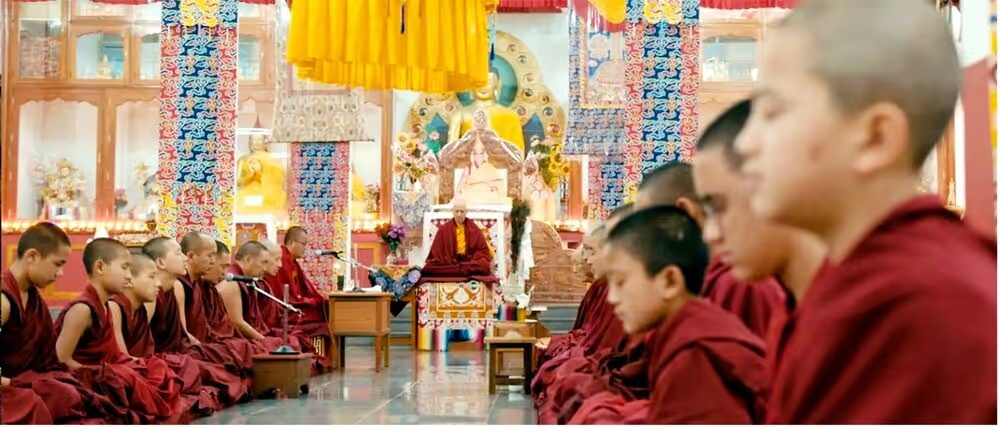
The documentary: a spiritual and cultural journey
Monk with a Camera not only documents Vreeland's life, but also explores profound spiritual and cultural themes. The film includes interviews with prominent figures, such as the Dalai Lama, Richard Gere and Khyongla Rato Rinpoche, who share their perspectives on Vreeland's impact. Through their stories, the importance of spiritual connection and the search for meaning in a world that often seems superficial is revealed.
The documentary also shows significant locations, such as the Tibet Center in New York, where Vreeland teaches and shares his experiences. Through these scenes, the viewer can appreciate how Tibetan Buddhism has found a place in the heart of the West, and how Vreeland has been a bridge between these two cultures.
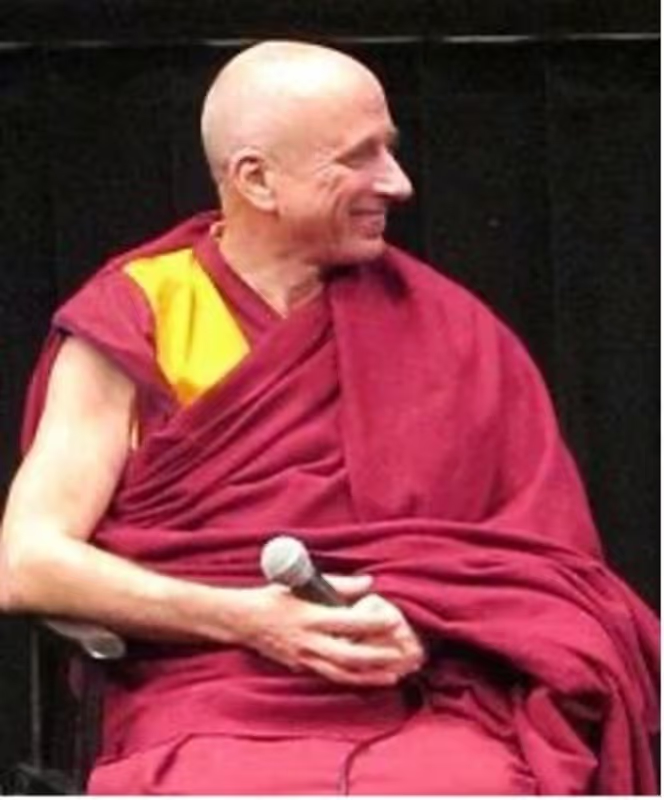
The influence of Nicholas Vreeland
Nicholas Vreeland's story is a testament to the power of personal transformation and the search for purpose beyond societal expectations. His life challenges conventional notions of success and happiness, showing that true fulfillment can be found in service to others and in the spiritual quest.
Vreeland has promoted cross-cultural dialogue and understanding between diverse spiritual traditions, contributing to the spread of Tibetan Buddhism around the world. His inclusive approach and ability to connect with people from different backgrounds has made his message resonate with many, inspiring others to explore their own spirituality.
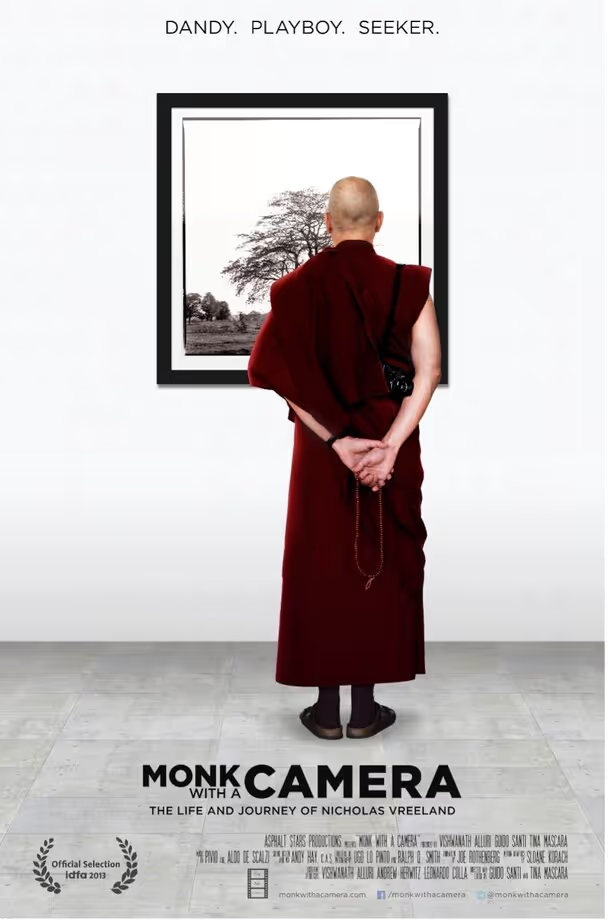
Final thoughts
Monk with a Camera is a powerful testament to the human capacity to find meaning and purpose in unexpected places. Nicholas Vreeland's life inspires those who seek a path beyond conventional expectations. By documenting his journey, the film invites us to reflect on our own quests for meaning and spiritual connection.
Through his story, the documentary raises profound questions about the nature of success and happiness. Is material success what we really seek, or is there something deeper that we long for within ourselves? Vreeland's life reminds us that, often, true purpose is found in service to others and connection to something greater than ourselves.
In a world that often prioritizes the superficial, Nicholas Vreeland's story is a beacon of hope and a reminder that personal transformation is possible. His journey from a background of privilege to a life of spiritual dedication invites us to consider our own choices and the impact they can have on our lives and the lives of others.
In the end, the film leaves us with a fundamental question: What does it really mean to live a full and meaningful life? The answer may vary for each of us, but the search for that answer is an essential part of the human experience. Through her journey, Vreeland reminds us that true richness is found in connection with others, in the search for truth, and in commitment to a greater purpose.
Links:
Interview with Vreeland about Monk with a Camera in Tricycle magazine
Vreeland's website: http://nicholasvreeland.com
The Tibet Center website: http://thetibetcenter.org/schedule/










